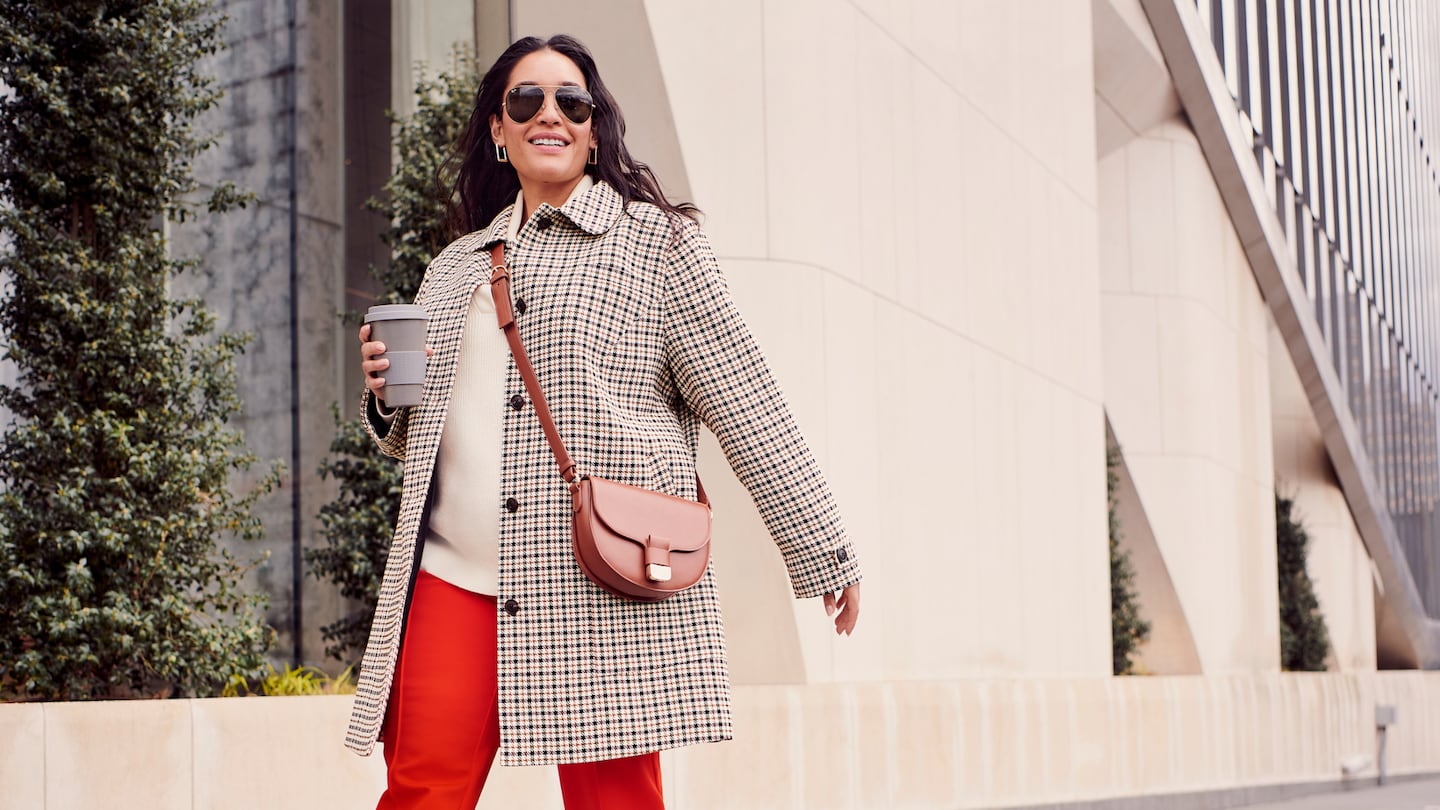
The Business of Fashion
Agenda-setting intelligence, analysis and advice for the global fashion community.

Agenda-setting intelligence, analysis and advice for the global fashion community.

As the biggest apparel retailer in the US, Amazon is adept at selling Hanes underwear, Under Armour shorts and Adidas sneakers to the masses.
It’s had less success pushing its own brands.
The e-commerce giant is shuttering all but three of its 30 clothing labels, according to The Wall Street Journal. Few consumers are likely to miss lines like Lark & Ro, North Eleven and GoodThreads.
This should be a prime moment for private labels. Consumers squeezed by inflation are theoretically more willing to look past the name on the label in search of a good deal. Recent surveys by professional services firm EY found declining brand loyalty and increased openness to private-label products in the US.
ADVERTISEMENT
But turning theory into reality is proving difficult for some of the world’s biggest retailers. Around the time Amazon pulled the plug on its private labels, Macy’s unveiled the women’s basics line On 34th, the first of four new brands in its effort to “refresh, reimagine and replace” the department store’s private label portfolio, as chief executive Jeff Gennette put it in March. Its own brands have declined from a historical high of 20 percent of sales to 16 percent last year.
Foot Locker is having more success. It relaunched its owned-brands business in 2021, introducing lines for men and women focused on elevated casualwear including hoodies, joggers and jackets to sit alongside products from third-party labels like Nike and Adidas. In the quarter ended April 29, its brands were up to 11 percent of apparel sales.
As more brands emphasise direct-to-consumer sales (including Nike and Adidas), multi-brand retailers need to understand how to build brands themselves to remain relevant, said Ricardo Lajoie, vice president of global product creation at Foot Locker.
The best in-house brands are conceived based on consumer needs, rather than as a stopgap to plug holes in their assortment. They offer good quality for the money and can stand alone as brands.
“These days, you’ve got to build these things as if they’re brands, and they have an identity, a purpose and reason for being if you truly want to be successful,” Lajoie said.
Even for retailers that understand what their customers want, building a successful brand isn’t easy. They have to hire talent, create a desirable product, raise awareness around it and forge an emotional connection with shoppers. Unsurprisingly, Amazon and Macy’s aren’t the only ones that have had difficulties with private-label clothing.
“It’s really a mixed picture,” said Oliver Chen, a managing director and senior analyst at Cowen. “Nordstrom’s had a lot of missteps, and it’s not a big deal at Saks.”
Nearly two years ago, Farfetch unveiled There Was One, a line of women’s wardrobe staples stressing sustainability. Since, executives have hardly mentioned the line, which remains active.
ADVERTISEMENT
Luxury retailers Matches and Mr Porter have had more success attracting shoppers to their respective brands, Raey and Mr P, by producing high-quality products that fit beside the other names they sell. Target is the perennial example of a retailer that has created brands customers love. Its employees have also gone on to work on the private brands of other retailers, including Macy’s. Dick’s Sporting Goods has multiple labels its shoppers happily buy.
When Revolve went public in 2019, it had 24 brands. Today it operates 31. It has introduced them to fill areas where consumers were underserved, or the company felt it was underpenetrated, according to Mitch Moseley, who oversees the online retailer’s owned brands. They also let Revolve react faster to the market: With its own products, it can go from concept to delivery in as little as four months in some cases, while wholesale products can have lead times closer to one year, Moseley said.
It can be difficult keeping so many brands differentiated. Moseley admitted that before the pandemic Revolve was putting out too many products, leading to instances where they could cannibalise each other. Now it’s optimising the assortment. Currently the share of Revolve’s sales made up of its private brands has dipped from its 2019 high, but overall sales have still increased as the company as a whole has grown.
“We’re revamping and ramping up into the future,” Moseley said. “Next year we’re planning for about 20-percent-plus SKU growth.”
Smaller retailers can also benefit. Evereve, a multi-brand shop with about 100 stores in the US, mostly in the Midwest, launched a line under its own name in 2021 after previously dabbling in different proprietary brands. The line’s sales have outpaced overall company growth by at least double each year, according to Kristen MacVey, chief merchandising officer. About 30 percent of total sales now come from Evereve’s own products.
“We very much see this as a growth initiative for the next three years that we will continue to build,” MacVey said. “It has been a huge success.”
For retailers to build brands of their own can take time. Evereve started small, focusing on simpler items MacVey said they knew would be “home runs” such as cut-and-sew knits. From there they branched into dresses and sweaters and have continued broadening into more complex items like denim bottoms and jackets.
It assembled its team in a similar way. First it hired a design director to formulate a viewpoint for the product, then added a technical team to manage issues like fit and quality and then a sourcing team. A number of Evereve’s employees previously worked on Target’s brands; MacVey herself is a Target alum.
ADVERTISEMENT
At Revolve, an early acquisition was a big step in fleshing out its brand portfolio and team. In 2015, seeing the success of labels such as Lovers + Friends on its site, it went ahead and bought the owner, Alliance Apparel, where Moseley was a co-founder. (When ASOS purchased Topshop and other brands in 2021, it integrated them into its portfolio of private brands.)
Moseley said the company strives to treat each line as its “own unique, living and breathing thing,” a quality he said is vital since they have elevated price points and aren’t just competing on cost. It’s a point others made as well. While private brands are often less expensive than the third-party products a retailer sells, what’s important is arguably value more than price.
Chen of Cowen said a winning combination for retailers is if their brands have a reasonable price and better quality than comparable third-party products. They should also have a clear reason for existing.
“They lean into white space and they are built around consumer needs,” said Jessica Ramírez, senior research analyst at Jane Hali & Associates, an investment research firm.
One of the biggest challenges for retailers is building awareness of their brands and a sense of legitimacy in the eyes of consumers. Foot Locker’s Lajoie said collaborations have been critical for the company in this regard.
The advent of generative AI now “offers a tremendous competitive advantage to private label” for retailers that can use it to reduce time and costs in developing their own products, said Lokesh Ohri, EY Americas consumer consulting leader. Revolve, for one, is actively exploring the technology for this purpose.
Despite the struggles of some businesses, he and others see no reason for retailers to stop building brands themselves.
“For large-size, mature businesses, this is an important element and vehicle that we have to try to figure out how to unlock,” Foot Locker’s Lajoie said.
Editor’s Note: This article was amended on Aug. 23, 2023, to clarify the timing of Foot Locker’s quarter.
From Mr Porter to MatchesFashion, retailers are looking to in-house brands to drive growth in today’s data-driven market.
Private labels were once a way for multi-brand retailers to ‘fill in the gaps’ in their designer offering. But for Joseph, it’s become a foundation for global expansion.
At a time when fashion companies are more focused on brand than ever before, private label manufacturers continue to flourish. BoF reports.

Marc Bain is Technology Correspondent at The Business of Fashion. He is based in New York and drives BoF’s coverage of technology and innovation, from start-ups to Big Tech.
Designer brands including Gucci and Anya Hindmarch have been left millions of pounds out of pocket and some customers will not get refunds after the online fashion site collapsed owing more than £210m last month.
Antitrust enforcers said Tapestry’s acquisition of Capri would raise prices on handbags and accessories in the affordable luxury sector, harming consumers.
As a push to maximise sales of its popular Samba model starts to weigh on its desirability, the German sportswear giant is betting on other retro sneaker styles to tap surging demand for the 1980s ‘Terrace’ look. But fashion cycles come and go, cautions Andrea Felsted.
The rental platform saw its stock soar last week after predicting it would hit a key profitability metric this year. A new marketing push and more robust inventory are the key to unlocking elusive growth, CEO Jenn Hyman tells BoF.